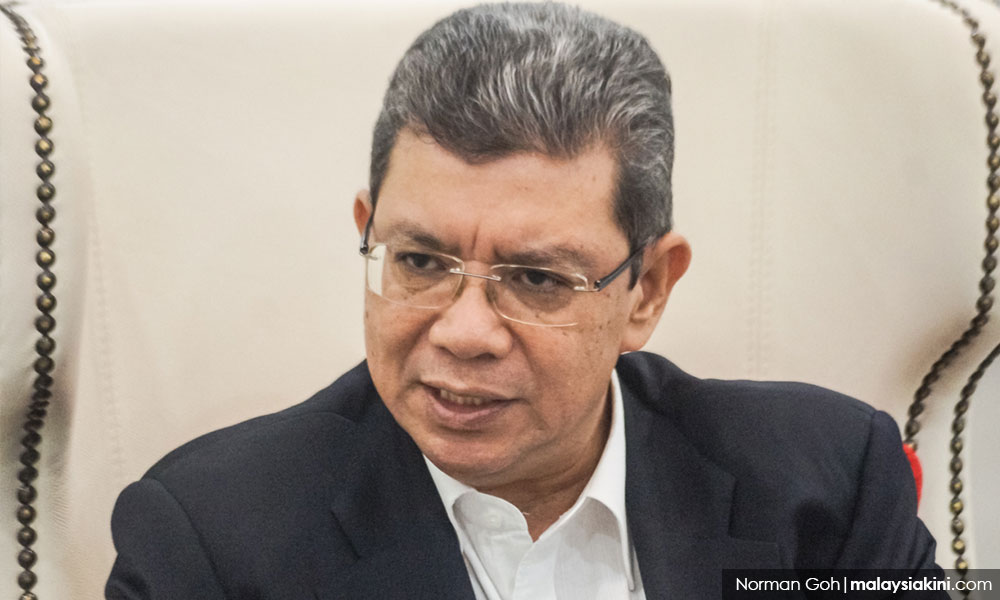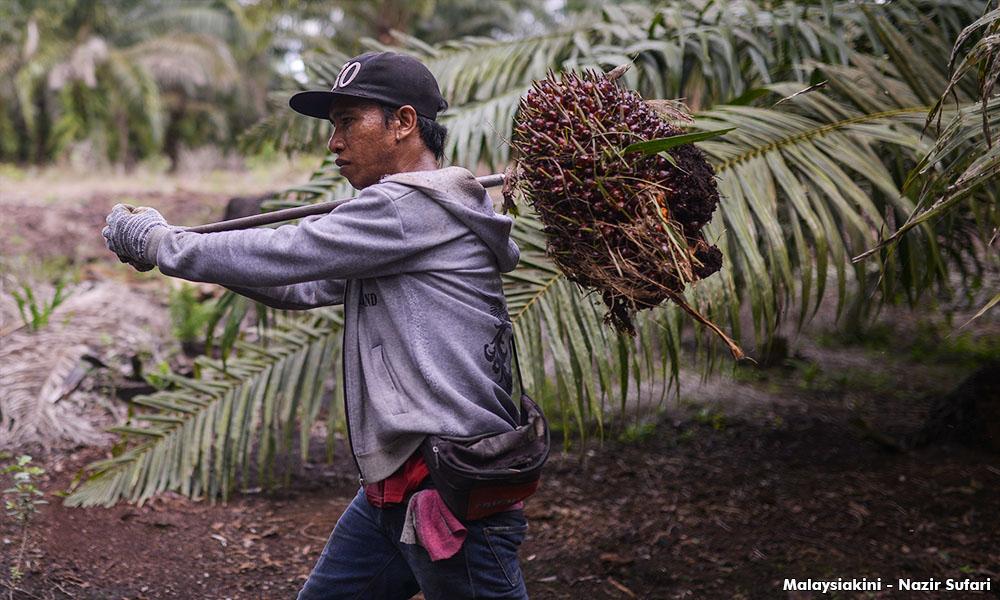
The elevation of relations between Asean and European Union to “strategic partnership” status should be deferred with the ongoing trade dispute over palm oil, says Foreign Minister Saifuddin Abdullah.
According to Saifuddin, labelling palm oil a threat is “unfair,” as Malaysia has over 60 laws and regulations that cover wildlife and environmental protection, in addition to emphasising worker safety and welfare.
“That’s why it is unfair to generalise Malaysian palm oil as being a threat to the environment, and in opposition to the (UN Sustainable Development Goals), which we have incorporated into our (Pakatan Harapan's) manifesto, the 11th Malaysia Plan, and our Foreign Policy Framework, among others.
“Given the adverse impact of these circumstances against Malaysia and other Asean palm oil-producing states, Malaysia and Indonesia, together with the support of the other Asean member states, are of the view that the elevation of Asean-EU dialogue relations to a strategic partnership should be deferred to a later stage,” he told Malaysiakini.
Saifuddin said this following the 22nd EU-Asean Ministerial Meeting in Brussels on Monday.
On Jan 21, Asean and the EU agreed in principle to upgrade their dialogue relations to a strategic partnership. However, this is subject to the details and timing of the elevation, which are yet to be worked out.
Both also welcomed the establishment of a joint working group between the EU and “relevant Asean member states” to address palm oil-related issues.
In January last year, the European Parliament passed a resolution to ban the use of palm oil in the production of biofuels in the EU by 2020, in a bid to halt deforestation in Indonesia and Malaysia, the two largest producers of the commodity.

Both Malaysia and Indonesia have been lobbying the EU not to proceed with the ban.
It was previously reported that about a third of the EU’s palm oil imports goes into biodiesel production.
According to the Malaysian Palm Oil Board statistics, Malaysia exported 16,486,702 tonnes of palm oil last year. Of these, 1,911,797 tonnes, or 11.6 percent, were destined for EU member states.
As Saifuddin noted, the commodity as a whole has been tarnished as unsustainable and environmentally destructive by anti-palm oil “propaganda,” based on the practices of a handful of irresponsible producers.
He insisted that palm oil is one of the most nutritious, productive, sustainable and profitable oils in the world.
In addition, he said Malaysia has moved on from expanding palm oil plantations, and is instead focusing on improving productivity.
“More than 50 percent of Malaysia is covered in forest, which is far higher than most large European countries.
“Malaysia’s annual deforestation rate has dropped to below 0.5 percent, and we have adopted policy not to allow any new forest areas to be opened for palm oil.
“According to the UN Food and Agriculture Organization report in 2015, Malaysia is classified as a high forest and low deforestation country,” he said.
Saifuddin also pointed out that Malaysia also accounts for 42 percent of the global production of certified sustainable palm oil, and in 2008 became the first to be certified by the Roundtable on Sustainable Palm Oil (RSPO).
In addition, he said Malaysia is working with the International Sustainability Carbon Certification (ISCC) and other certification bodies to recognise the Malaysian Sustainable Palm Oil (MSPO) standard, and is committed to be fully MSPO-compliant by 2020. - Mkini


No comments:
Post a Comment
Note: Only a member of this blog may post a comment.